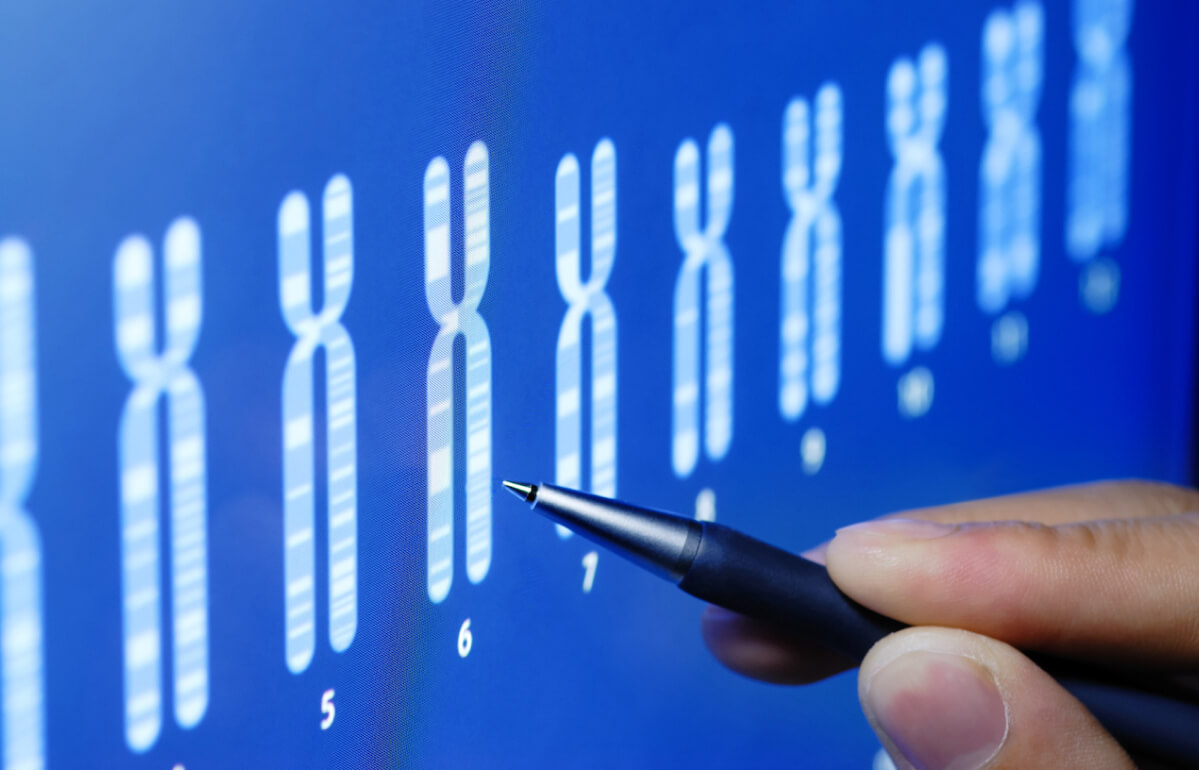PGT

Preimplantation Genetic Testing at NYU Langone RSNY
Preimplantation Genetic Testing
Preimplantation genetic testing (PGT) refers to genetic testing performed on an embryo in the early stages of embryonic development. PGT can be used to identify embryos affected by genetic abnormalities that could increase the chance of miscarriage or increase the chance of a pregnancy affected by chromosomal conditions (ie. cystic fibrosis, Tay-Sachs disease, hemophilia). Preimplantation genetic testing and the subsequent transfer of a single, euploid (“normal”) embryo increases the chance of successful implantation and, ultimately, increases the chance of a successful pregnancy.
PGT requires the removal of a small number of cells from the developing embryo in a process called an “embryo biopsy.” The biopsy is performed by skilled embryologists at NYU Langone RSNY. The embryos are then frozen and stored onsite while the sample of cells removed is sent to a genetic testing lab to perform PGT analysis.
When is PGT recommended?
We recommend that all patients who plan to undergo IVF discuss preimplantation genetic testing with their physician. Additionally, PGT is recommended for individuals or couples with one or more of the following:
- Family history of genetic disease
- Repeated unsuccessful IVF attempts
- Recurrent miscarriage
- A history of genetically abnormal pregnancies
Preimplantation Genetic Testing for Aneuploidy (PGT-A)
Preimplantation genetic testing for aneuploidy (PGT-A) allows us to count the number of chromosomes in the embryo culture. Chromosomes are the structures found within cells that contain genetic material (DNA) in 23 chromosomal pairs. PGT-A analysis helps to identify any embryos affected with genetic abnormalities (ie. too many or too few chromosomes, or structural defects).
There are 4 possible results from PGT-A testing: euploid, aneuploid, mosaic, and inconclusive.
- A euploid or “normal” result means that 23 pairs of chromosomes were detected in the embryo culture. These embryos have the highest chance of resulting in a live birth and the lowest chance of miscarriage.
- An aneuploid or “abnormal” result means that at least one chromosomal abnormality was detected in the embryo culture. We do not recommend transferring aneuploid embryos, as they very rarely result in healthy pregnancies.
- A “mosaic” result means there is some risk of extra, missing, or damaged chromosomes in some, but not all, cells in the embryo culture. Embryos with mosaic results sometimes result in healthy live births, but do so at a lower rate than euploid embryos. If you are considering transfer of a mosaic embryo, NYU Langone RSNY requires a consultation with our genetic counselor prior to initiating a frozen embryo transfer (FET) cycle.
- Finally, an “inconclusive” result means the genetic testing laboratory was unable to obtain a clear result from the embryo culture. This occurs in approximately 2% of embryos, and does not necessarily indicate a problem with the embryo – it is simply a known limitation of testing a small amount of genetic material.
PGT-A testing and the transfer of a single, euploid (“normal”) embryo reduces the risk of miscarriage by reducing the chance of transferring a genetically abnormal embryo. PGT-A testing also reduces the chance of multiple pregnancies (ie. twins) – when PGT-A testing is performed, physicians transfer a single, euploid embryo, which reduces the chance of multiple birth to 1-2%.
Preimplantation Genetic Testing for Structural Rearrangements (PGT-SR)
Preimplantation genetic testing for structural rearrangements (PGT-SR) is used by specific women or men who have been diagnosed with a balanced translocation, inversion, or other type of chromosomal rearrangement. In these situations, PGT-SR can increase the chance of a live birth and reduce the chance of a miscarriage by selecting embryos that are balanced (i.e. have the correct amount of chromosomal material).
Preimplantation Genetic Testing for Monogenic Disorders (PGT-M)
Preimplantation genetic testing for monogenic disorders (PGT-M) is used by individuals or couples who are at high risk for having a pregnancy with a specific inherited disease.
PGT-M uses various customized approaches to test for specific genetic variants (mutations) prior to implantation, in order to reduce the chance for any conceived pregnancy to be affected with the associated disorder.
PGT-M is usually possible for any condition in which a specific genetic mutation has been identified in a person undergoing IVF. Some examples of conditions for which an individual or couple may be at high risk and choose to pursue PGT-M are cystic fibrosis, hereditary breast and ovarian cancer syndrome (BRCA1 or BRCA2), fragile X syndrome, Huntington’s disease, Marfan syndrome, Tay-Sachs disease, spinal muscular atrophy, and sickle cell anemia.
Preimplantation Genetic Testing: FAQ's
How long does preimplantation genetic testing take in IVF?
Embryos are biopsied after 3-5 days of development in the laboratory and then frozen while a culture of cells is sent to the genetic testing lab for analysis. This testing takes approximately 14 days to complete.
How accurate is Preimplantation Genetic Screening?
Information gathered during Preimplantation Genetic Screening can be used to diagnose genetic abnormalities in embryos with a 98% rate of accuracy.
What is the next step in the care process after Preimplantation Genetic Screening?
Once the results of Preimplantation Genetic Screening are received, patients will discuss the results and the quality of each embryo with their physician. This will help to determine which embryo will be selected for transfer. When the patient is ready, the patient may begin a Frozen Embryo Transfer (FET) Cycle.

